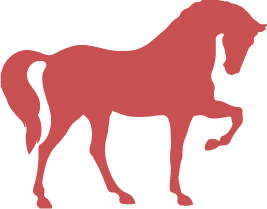PET CARE: SPECIAL OFFERS FROM THE SPRING CATALOGUE
Here are our leading offers for Pet care from the Spring Catalogue. Prices may vary due to freight. Kills Ticks, Fleas, Intestinal…
Free Delivery when you spend $49 or more. (Weight Limits Apply – view more)
 Dog
Dog

Shop Tuckers great range of dog food, health care & wellness products today. Delivered or Click & Collect.
 Cat
Cat

Tuckers has a great range of cat food, health care & litter products for your beloved cat. Shop now.
 Horse
Horse

Tuckers carry a huge range of food, supplements, health care, hoof care and grooming accessories. Shop now.
 Chook/Bird
Chook/Bird

Tuckers range of food, accessories & health care products will keep your chooks & birds happy and healthy.
 Small Animal
Small Animal

Shop food and health care products for your little mates @ Tuckers. Delivered or Click & Collect.
 Farm/Garden
Farm/Garden

Tuckers carry a wide range of sheep & cattle products, plus everything you’ll need around the farm or garden.
 Dog
Dog

Shop Tuckers great range of dog food, health care & wellness products today. Delivered or Click & Collect.
 Cat
Cat

Tuckers has a great range of cat food, health care & litter products for your beloved cat. Shop now.
 Horse
Horse

Tuckers carry a huge range of food, supplements, health care, hoof care and grooming accessories. Shop now.
 Chook/Bird
Chook/Bird

Tuckers range of food, accessories & health care products will keep your chooks & birds happy and healthy.
 Small Animal
Small Animal

Shop food and health care products for your little mates @ Tuckers. Delivered or Click & Collect.
 Farm/Garden
Farm/Garden

Tuckers carry a wide range of sheep & cattle products, plus everything you’ll need around the farm or garden.


By Johnny / Nutrition & Feeding / November 20, 2023/Article by HyproPremium
When the soft eyes of your beloved pet gaze upon you as you nibble on a cheese sandwich, it’s tempting to give in and offer them a taste. Cheese, a staple in many households, naturally raises the question amongst pet owners: can dogs eat cheese? The answer lies in understanding the nuances of a dog’s dietary needs and how cheese fits within them.
Cheese, in moderation, can be a tasty treat that provides some nutritional benefits. However, as with any human food, it’s important to consider the type of cheese and the individual health of your dog. This article will explore the cheesy details, ensuring you’re equipped with the knowledge to make the best choice for your doggo’s health and happiness.
Is Cheese Good for Dogs?
When contemplating whether cheese is good for dogs, it’s crucial to consider the nutritional aspects of this dairy product. Cheese contains protein, essential fatty acids, vitamins, and minerals, all of which can contribute positively to your dog’s diet. For instance, the calcium in cheese can help strengthen bones and teeth, while the proteins support muscle development and repair.
In moderation, cheese can be a healthy treat for dogs. It’s often used for hiding medication or as a high-value training reward, thanks to its palatable taste that many dogs love. Additionally, certain types of cheese, like cottage cheese for dogs, are naturally lower in fat and may be a safer option for those watching their weight.
Nonetheless, it’s important to consider individual dietary restrictions, as not all dogs digest dairy well. Lactose intolerance can lead to gastrointestinal upset in some dogs after consuming cheese. Hence, introducing cheese in small quantities and observing your dog’s reaction is key.
For dogs with specific health concerns, such as obesity or pancreatitis, consulting with a veterinarian before adding cheese to their diet is advised. This ensures that any treat remains a joy, not a risk, to your dog’s health.
Nutritional Benefits of Cheese for Dogs
Cheese can be more than just a tasty treat for your dog; it also holds various nutritional benefits when included appropriately in their diet. Understanding these benefits can help you make informed decisions about feeding your dog cheese.
Protein and Essential Fats
Cheese is a good source of protein, which helps to maintain healthy muscles and bodily functions in dogs. The essential fats found in cheese can also support a dog’s skin and coat health, contributing to a shiny and healthy appearance.
Vitamins and Minerals
Cheese contains vitamins such as A and B-complex which help in maintaining healthy vision and ensuring proper nerve function. Minerals like calcium and phosphorus in cheese help to promote strong bones and teeth in dogs.
While cheese can offer these benefits, it’s important to remember that moderation is crucial. Cheese should only ever be a small part of a dog’s diet, given as an occasional treat rather than a regular component of their meals.
Always opt for naturally low-fat and low-sodium varieties to avoid any potential health issues related to excessive fat and salt intake. Always consider the specific needs of your dog, as those with particular health conditions or dietary restrictions may not find cheese a suitable addition to their diet. It’s always best to consult with a vet if you’re unsure about introducing cheese or any new food into your dog’s diet.
Potential Risks of Giving Your Dog Cheese
While cheese can be a delicious treat for dogs, it’s not without its risks. Certain types of cheese are not recommended for dogs, and even those that are deemed safe should be given with caution.
High Fat and Salt Content
Many cheeses are high in fat, which can lead to weight gain and obesity in dogs if consumed in large quantities. High-fat content can also increase the risk of pancreatitis, a serious condition that requires veterinary attention. Salt content is another concern; too much sodium can lead to increased blood pressure and contribute to other health issues.
Lactose and Dairy Sensitivities
Not all dogs digest lactose well, and cheese can cause stomach upset in lactose-intolerant dogs. Symptoms of lactose intolerance in dogs include diarrhoea, vomiting, and abdominal pain. If you notice these signs after feeding your dog cheese, it’s best to eliminate cheese from their diet.
Unsafe Varieties of Cheese
Some cheeses should be avoided entirely. For instance, blue cheese can contain roquefortine C, which can be toxic to dogs, potentially leading to high temperature, seizures, and more severe complications. Similarly, cheeses with added ingredients such as garlic or chives are also unsafe, as these can be toxic to dogs.
Signs of Adverse Reactions
After ingesting cheese, monitor your dog for any adverse reactions. Symptoms to look out for include gastrointestinal upset, lethargy, or changes in appetite or thirst. If you observe any of these signs, or if your dog has ingested cheese that contains potentially harmful additives, seek veterinary guidance immediately.
Ways to Safely Incorporate Cheese Into Your Dog’s Diet
Cheese can be a high-value treat for dogs, ideal for training and occasionally spicing up their diet. However, it’s crucial to introduce cheese into your dog’s diet safely to avoid any health issues.
Choose the Right Cheese
Opt for cheeses that are lower in fat such as cottage cheese or mozzarella. These are easier on your dog’s digestive system and less likely to contribute to weight gain. Always select plain varieties without any added flavourings or spices which could be harmful to your dog.
Quantity Control
When it comes to cheese, a little goes a long way. Use it sparingly, as too much can lead to the health issues previously mentioned. For a small dog, a few small cubes equivalent to a teaspoon can be sufficient, while a larger dog may be able to handle a tablespoon-sized portion.
Introduce Gradually
As with any new food, introduce cheese to your dog’s diet gradually. Start with a small piece to ensure they tolerate it without any adverse reactions. If there are no negative signs after a couple of days, you can continue to use cheese as an occasional treat.
Monitor Your Dog
Keep a close eye on your dog after they eat cheese. Look out for any signs of digestive distress or changes in behaviour, and if you notice anything concerning, discontinue cheese immediately and consult your vet.
Before adding cheese or any new treat to your dog’s diet, it’s always best to talk to your vet, especially if your dog has a pre-existing health condition or special dietary needs.
Summing Up: Can Dogs Have Cheese?
Dogs can indeed have cheese, but it should be considered more a special treat than a staple of their diet. Low-fat cheeses like cottage cheese are preferable, and moderation is key to avoiding potential health risks such as obesity and lactose intolerance.
When introducing cheese to your dog’s diet, always do so gradually and in small quantities. Keep an eye out for any signs of digestive upset or discomfort, and consult your vet if you have any concerns or if your dog has specific health issues.
While cheese can be a tasty addition, it’s important to ensure that your dog’s diet is balanced and nutritious. Hypro Premium’s range of quality pet foods provides a perfect base for your dog’s meals, which can be complemented with cheese as an occasional treat. By choosing premium, well-balanced dog food and being cautious with treats, you’ll help ensure that your furry friend stays happy and healthy.
Entire range - quick and secure delivery
Buy securely online and pickup at your local store
Call your local store and come on down to pickup
© 2024 Tuckers Pet & Produce.
